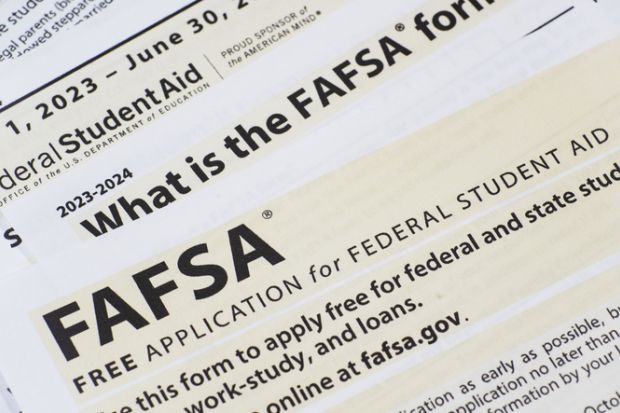Every academic year, students fill out the Free Application for Federal Student Aid (FASFA) in hopes of being able to pay for higher education with ease.
Students and their parents pull out their tax forms attempting to read the different sections and answer all the questions the FASFA poses.
A once complicated task has now been transformed to be “easier than ever” for students and families.
The FASFA form had to be completed for federal aid with applications starting Oct. 1. However, for the 2024-25 academic year, the FASFA was delayed and released in early Dec. as it was undergoing major changes.
Congress mandated the revision of the famously intricate form to reduce its complexity and broaden access to federal student aid for a greater number of low-income students, back in 2020.
This included shorter questions, from roughly around 100 to fewer than 50 questions, and an updated formula.
However, the delay and updates have had the opposite intended effect and have stressed more students and families during the college application process. And most of the blame has been placed on the Biden Administration.
U.S. Senator Markwayne Mullin said, “…while the Biden administration wastes time imposing unconstitutional student loan transfers onto hardworking Americans, they neglected to do their job in launching the #FAFSA program on time as required by law.
He added, “Despite having three years to meet this basic requirement, Joe Biden failed, and now millions of families are forced to make admissions decisions without knowledge of their need-based financial aid.”
Congresswoman Stephanie Bice responded, “Biden has had the Department of Education focused on forgiving student loans instead of fixing the broken FASFA portal which they had years to create.”
During a hearing evaluating the budget request for the U.S. Department of Education in Fiscal Year 2025, Senator Susan Collins, serving as Vice Chair of the Appropriations Committee, raised concerns to Secretary Miguel Cardona about the Department’s inability to enact the FAFSA Simplification Act in a delay that has hindered students and families from accessing college financial aid.
Cardona said, “Our kids deserve better and we are working around the clock to make sure it improves. We had delays. We had issues with some of the coding that we had to make changes to.“
Students and families are becoming more and more worrisome about their financial status, regardless of the current economy alone.
With a hindrance in college decisions from the new, delayed FASFA, there is more student confusion financially this academic year. Already almost 60 percent of parents said they financially assisted their children aged 18 to 34 in the past year, according to a Pew Research study.
Parents can imagine what happens now if their young children find themselves in large debt from the FASFA delay.
In the early 1990s, the Federal Methodology revolutionized federal student aid by creating the FASFA to replace the Common Financial Aid Form of 1986.
The 1992 Higher Education Act reauthorization solidified FAFSA’s role, making it the official form for federal aid applications.
FAFSA’s evolution included enhancements such as the creation of FASFA online and skip logic which automatically bypassed irrelevant questions for the applicant.
Over the years, FAFSA’s development has been guided by a commitment to improving accessibility and efficiency in higher education financing.
Mercy implemented a series of measures to simplify the delayed and updated financial aid process. They introduced a user-friendly financial aid estimator tool, enabling students to access early estimates of their direct costs and receive Estimated Financial Award Letters based on their data input.
Additionally, Accepted Student Days were rescheduled to April, ensuring attendees have access to either estimated or official financial aid packages aligned with their FAFSA information.
Lastly, Mercy extended the priority deposit deadline to June 1 to offer students more time to evaluate their options thoroughly.
To be eligible for financial aid at Mercy University, students must complete the FASFA form each academic year. Additionally, students must be a U.S. citizen or an eligible non-citizen, be regularly admitted to and enrolled at Mercy University as a matriculated student, and be enrolled full-time.
Students can complete and/or prepare for their FASFA form here.










